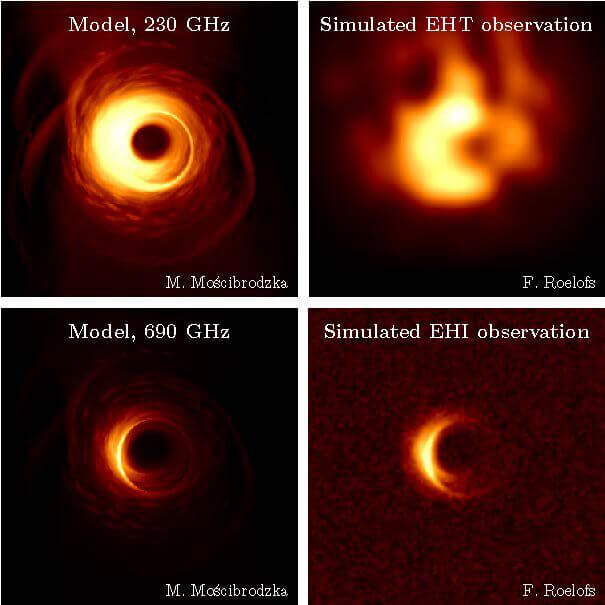Astronomers have only recently been able to get the world’s first photographs of a black hole, and now researchers are faced with the task of obtaining clearer images that will help test Einstein’s General Theory of Relativity. Scientists from the University of Nijmegen, the Netherlands, together with colleagues from the European Space Agency and other scientific institutions, offer the concept of taking clearer images of a black hole based on the use of special space radio telescopes.
The idea is to place two or three satellites in a circular orbit around the Earth to observe black holes. This concept is called the Event Horizon Imager (EHI). In their study, scientists published black-hole images from simulations that show how high-resolution images from the EHI telescope system will look.
Using satellites instead of ground-based telescopes, such as the Event Horizon Telescope (EHT) radio telescope, has several advantages. In space, observations can be made at higher frequencies, at which observations from the Earth are difficult due to the filtering of these frequencies by the atmosphere. In addition, in space, you can significantly increase the distance between telescopes. This allows you to make a big step forward. We will be able to take pictures with a resolution greater than 5 times the resolution of the EHT telescope.
-the main author of the new study, Freek Roelofs of the University of Nijmegen
The study also considered a possible way to transfer data for analysis. Data obtained using the ground-based telescope EHT, currently delivered to the analytical centers using aircraft on hard drives. Of course, such a delivery method is not possible with the use of space telescopes, so data can be transmitted to Earth using a laser data transmission system, while the primary data processing will be done already on board these satellites, the authors point out.
Space telescopes will help to get clearer black holes pictures
Click To Tweet
The post Space telescopes will help to get clearer black holes pictures appeared first on Upcosmos.com.
